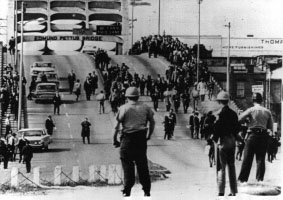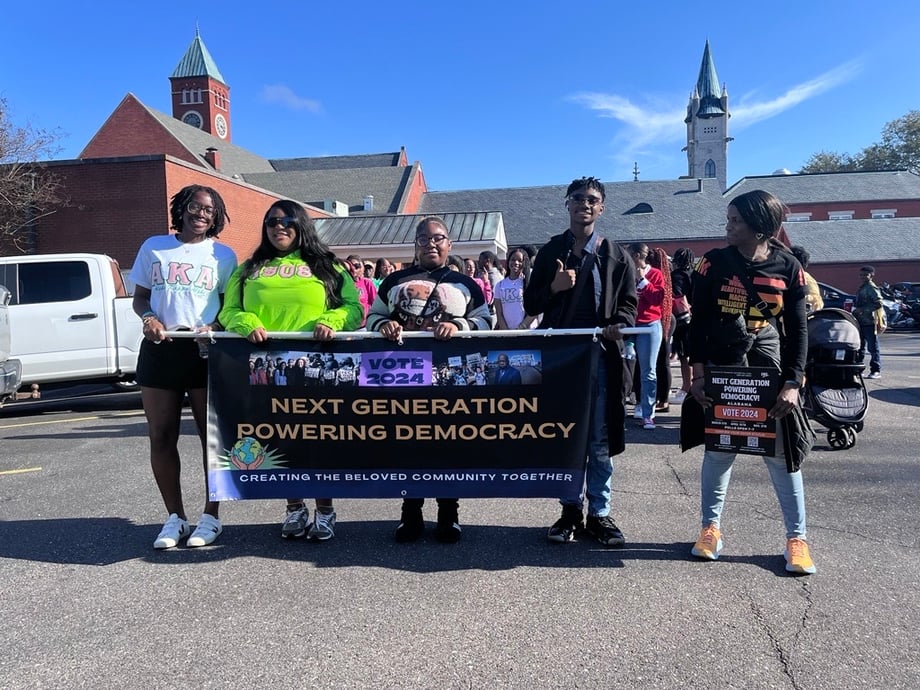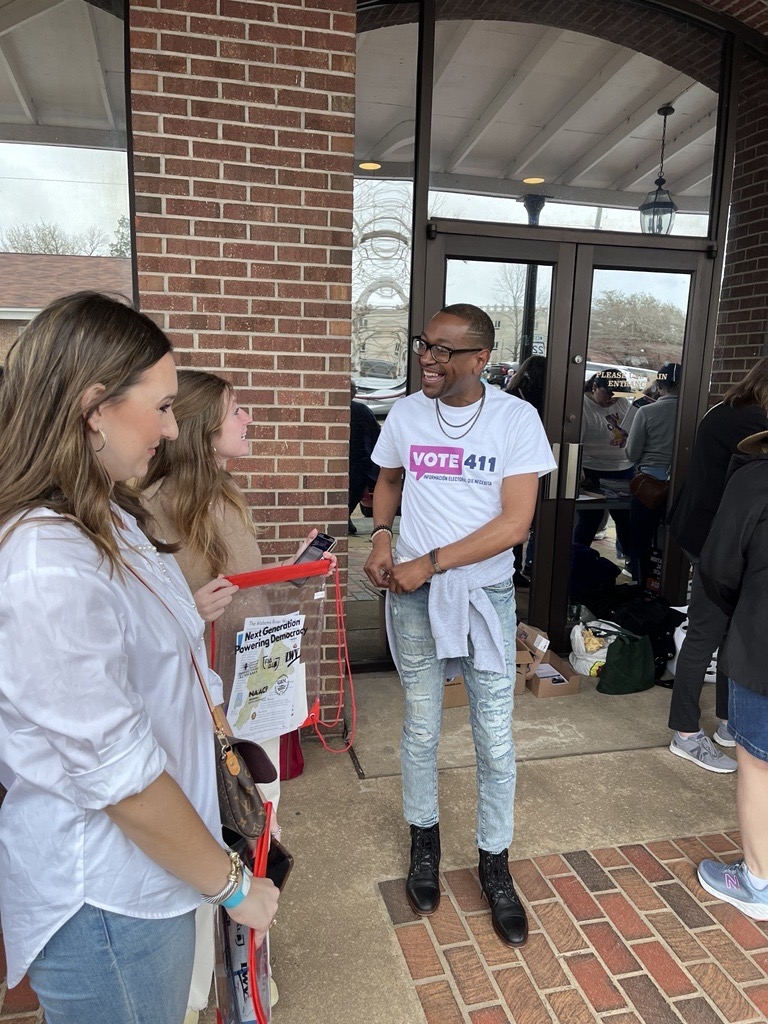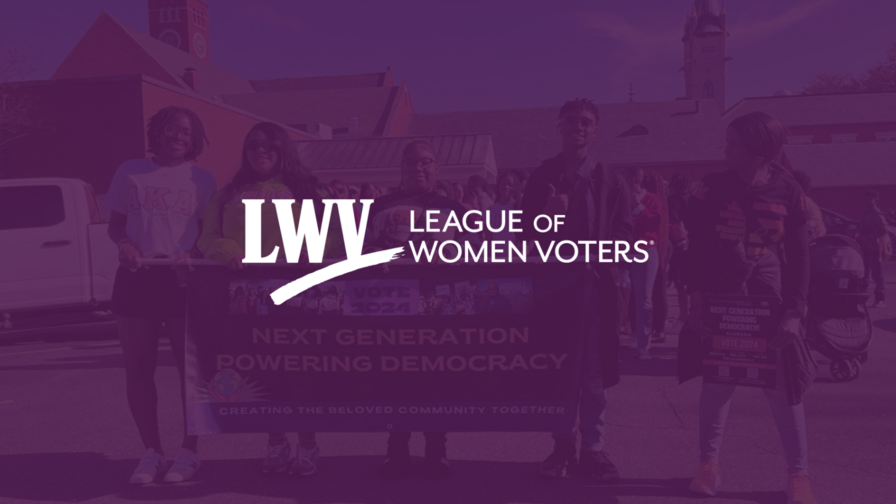LWV Powers Young Voters in Selma
Bloody Sunday refers to the day in 1965 when hundreds of civil rights activists were attacked by law enforcement while marching for Black American's right to vote. It might seem like that was a long time ago, but the historic march from Selma to Montgomery was only 59 years ago — many Americans have personal memories of that day.
Now, the anniversary of Bloody Sunday is an observance where civil and voting rights advocates congregate for the annual Selma Jubilee. The jubilee honors the legacy of the original foot soldiers who risked their lives for equal rights. Jubilee attendees build on the original activists’ legacies by continuing to fight for equal representation.

This year, the League of Women Voters of the United States, along with the League of Women Voters of Alabama, Florida, Georgia, Kentucky, and Utah, traveled to Montgomery and Selma the weekend of Bloody Sunday to join the Jubilee. As one of the oldest grassroots voting rights organizations in the US, the League knew we needed to show up in radical solidarity to stand against voter discrimination and to ensure the next generation of voters were empowered to make their voices heard.
Throughout the Jubilee, young voters made it clear that they were energized and ready to make their voices heard.
Several events in Selma captured the movement of young people as they built momentum as tomorrow’s leaders. Young leaders at the NAACP legislative rally day at the Alabama state capitol in Montgomery spoke about the importance of getting out the vote and honoring the legacy of those who fought before us. At the Jubilee Street Festival, League organizers engaged Gen Z voters with VOTE411 materials and ensured that they had their voting plans for Super Tuesday (which took place the following week).
That same day, we partnered with the Transformative Justice Coalition for a panel discussion specifically for Gen Z and college students on ways to get out the vote. The League’s very own organizer, Nile Blass, spoke about empowering young voters to make their voices heard despite restrictive, anti-voter measures. Along with the League, the panel elevated the voices of students from Florida State and Lincoln universities.

With so many events that weekend, the League wanted to ensure we gave back to the Selma community. To do so, the League of Women Voters of Alabama, the NAACP, Greater Birmingham Ministries, and Faith in Action Alabama hosted a “lunch and learn” at the Cornerstone Presbyterian Church. There, Selma residents, including roughly 500 students from local high schools, middle schools, and colleges, learned about civic engagement over a catered lunch. Speakers included the League of Women Voters, the Alabama Channel, Alabama Arise, Alabama Rivers Alliance, Alabama Library Association, Read Freely Alabama, and Alabama Forward.
The events in Selma culminated in the historic walk over the Edmond Pettus Bridge, the site of the initial Bloody Sunday violence. Young people from all around the country joined the League and allies in reclaiming the space as one of solidarity around the right to vote. Seeing this large group of young, energized voters set a powerful tone that the future leaders of this country are dedicated to empowering voters and defending democracy.

There was a clear takeaway from this year’s Jubilee: young voters care about their community and deserve to have a say in the decisions that affect them. We must support young voters, so empowering them to make their voices heard has always been and will be a League priority. The 59th anniversary of Bloody Sunday reminds us that we must march together toward a future where every voice is heard, every vote is counted, and every individual is empowered to shape their destiny.
The Latest from the League
On March 7, 1965, hundreds of civil rights protestors attempted to march the 50 miles between Selma and Montgomery, Alabama to protest the suppression of Black votes. In this blog, we honor the work of the women who participated in this historic act.
As activists gathered in Selma on Sunday to reenact the steps of marchers like John Lewis and Martin Luther King, Jr., we are reminded that the fight for voting rights is as alive today as it was in 1965. Indeed, the landmark law that passed after Bloody Sunday — the Voting Rights Act of 1965 — is in critical condition.
If we want to create a more inclusive democracy that represents the diverse needs of its people, we must empower young voters.
Learn why young voters are so important and how you can support them!
Sign Up For Email
Keep up with the League. Receive emails to your inbox!
Donate to support our work
to empower voters and defend democracy.





